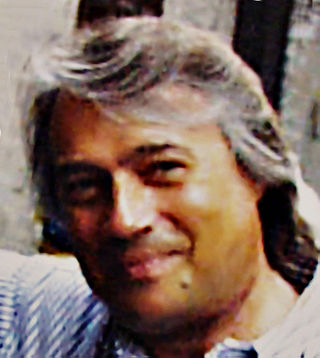
In music, a cadenza is, generically, an improvised or written-out ornamental passage played or sung by a soloist or soloists, usually in a "free" rhythmic style, and often allowing virtuosic display. During this time the accompaniment will rest, or sustain a note or chord. Thus an improvised cadenza is indicated in written notation by a fermata in all parts. A cadenza will usually occur over either the final or penultimate note in a piece, the lead-in, or the final or penultimate note in an important subsection of a piece. It can also be found before a final coda or ritornello.
A concerto is, from the late Baroque era, mostly understood as an instrumental composition, written for one or more soloists accompanied by an orchestra or other ensemble. The typical three-movement structure, a slow movement preceded and followed by fast movements, became a standard from the early 18th century.

Henryk Szeryng was a Polish-Mexican violinist.
James Ehnes, is a Canadian concert violinist and violist.

Shlomo Mintz is an Israeli violin virtuoso, violinist and conductor. He regularly appears with orchestras and conductors on the international scene and is heard in recitals and chamber music concerts around the world.
Viktoria Yurievna Mullova is a Russian-born British violinist. She is best known for her performances and recordings of a number of violin concerti, compositions by J.S. Bach, and her innovative interpretations of popular and jazz compositions by Miles Davis, Duke Ellington, The Beatles, and others.
Ilya Kaler is a Russian-born violinist. Born and educated in Moscow, Kaler is the only person to have won Gold Medals at all three of the International Tchaikovsky Competition ; the Sibelius ; and the Paganini.
D major is a major scale based on D, consisting of the pitches D, E, F♯, G, A, B, and C♯. Its key signature has two sharps. Its relative minor is B minor and its parallel minor is D minor.
D minor is a minor scale based on D, consisting of the pitches D, E, F, G, A, B♭, and C. Its key signature has one flat. Its relative major is F major and its parallel major is D major.

Julia Fischer is a German classical violinist and pianist. She teaches at the Munich University of Music and Performing Arts and performs up to 60 times per year.

Pekka Kuusisto is a Finnish musician.

Augustin Hadelich is an Italian-German-American Grammy-winning classical violinist.

Boris Davidovich Belkin is a Soviet-born violin virtuoso.

Sergei Stadler is a Russian violinist and conductor. He is currently Artistic Director and Chief Conductor of the Saint Petersburg Symphony Orchestra.
Gerhard Taschner was a noted German violinist and teacher.
Miriam Fried is a Romanian-born Israeli classical violinist and pedagogue.

The International Violin Competition of Indianapolis (IVCI) is a classical violin competition which takes place once every four years in Indianapolis, Indiana. Since its founding in 1982, "The Indianapolis" has been regarded as the Olympics of the Violin, and dubbed "the ultimate violin contest" by the Chicago Tribune.

Joshua Epstein is an Israeli musician, classical violinist and music educator. The recipient of many international prizes from violin competitions and recording labels, Epstein's work as a soloist and chamber musician is extensive. Equally extensive is his influence as a professor of violin, which extends over more than half a century. Epstein continues his work at the Hochschule für Musik Saar in Saarbrücken, Germany, where he has lived and taught since 1978.
Hawijch Elders is a Dutch violinist born on 31 October 1998.
The Yampolsky International Competition is a Russian violin competition held in Moscow, Russia in honor of Abram Yampolsky.









